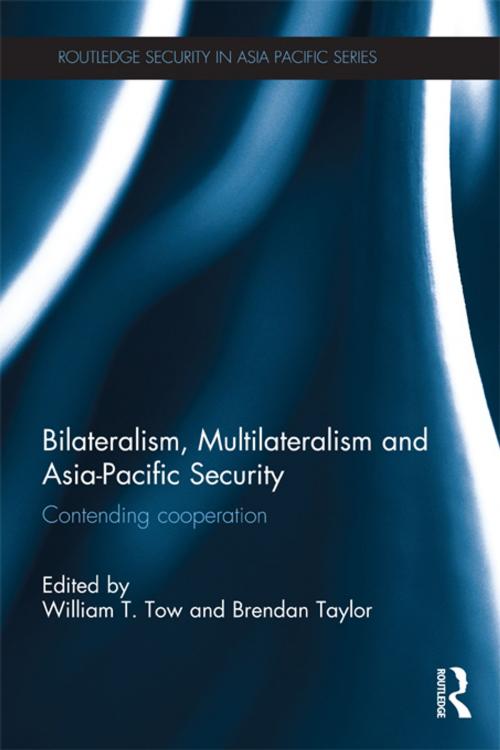Bilateralism, Multilateralism and Asia-Pacific Security
Contending Cooperation
Nonfiction, Social & Cultural Studies, Social Science, Cultural Studies, Ethnic Studies| Author: | ISBN: | 9781135973896 | |
| Publisher: | Taylor and Francis | Publication: | September 2, 2013 |
| Imprint: | Routledge | Language: | English |
| Author: | |
| ISBN: | 9781135973896 |
| Publisher: | Taylor and Francis |
| Publication: | September 2, 2013 |
| Imprint: | Routledge |
| Language: | English |
Many scholars of international relations in Asia regard bilateralism and multilateralism as alternative and mutually exclusive approaches to security co-operation. They argue that multilateral associations such as ASEAN will eventually replace the system of bilateral alliances which were the predominant form of U.S. security co-operation with Asia-Pacific allies during the Cold War. Yet these bilateral alliances continue to be the primary means of the United States’ strategic engagement with the region. This book contends that bilateralism and multilateralism are not mutually exclusive, and that bilateralism is likely to continue strong even as multilateralism strengthens. It explores a wide range of issues connected with this question. It discusses how US bilateral alliances have been reinvigorated in recent years, examines how bilateral and multilateral approaches to specific problems can work alongside each other, and concludes by considering how patterns of international security are likely to develop in the region in future.
Many scholars of international relations in Asia regard bilateralism and multilateralism as alternative and mutually exclusive approaches to security co-operation. They argue that multilateral associations such as ASEAN will eventually replace the system of bilateral alliances which were the predominant form of U.S. security co-operation with Asia-Pacific allies during the Cold War. Yet these bilateral alliances continue to be the primary means of the United States’ strategic engagement with the region. This book contends that bilateralism and multilateralism are not mutually exclusive, and that bilateralism is likely to continue strong even as multilateralism strengthens. It explores a wide range of issues connected with this question. It discusses how US bilateral alliances have been reinvigorated in recent years, examines how bilateral and multilateral approaches to specific problems can work alongside each other, and concludes by considering how patterns of international security are likely to develop in the region in future.















